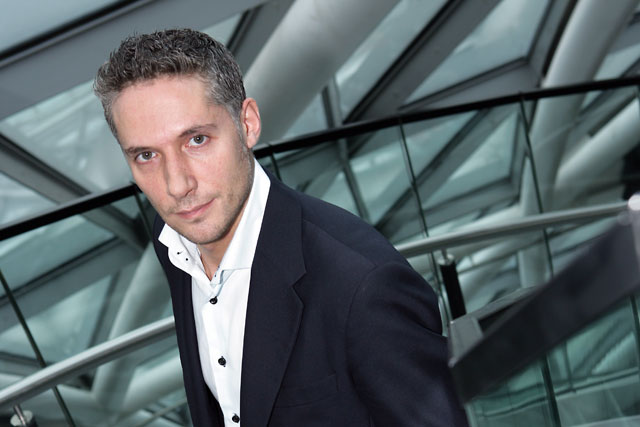Who would have believed that, a mere eight years ago, the only Stratford that people knew or cared about was the one in Warwickshire? And the main Olympic association was an airline? Now, things couldn't be more different - people presume Shakespeare was from East London and Seb Coe is as popular as Simon Cowell.
As we embark on our year as host city for the 2012 summer Games, London business and, more specifically, our creative industries have a once-in-a-generation opportunity to make their mark. There is no doubt that the Olympic and Paralympic Games will be an incredible success - primarily due to the super-human feats we will witness from the athletes and the dedication of tens of thousands of volunteers and cheering fans. But economic benefit has to be our benchmark of success, throughout 2012 and long into the future.
During some of the darkest years of this economic downturn, London has delivered a colossal regeneration project - on time and under budget. The stage has been built. The biggest-spending brands in the world and most of their competitors are here, fighting for a share of the world's most-watched and lucrative event. Some people (unfairly, in my view) criticise the Games for its corporate hospitality structure (even though sponsors only get 7 per cent of tickets for their £1 billion investment). And it would be fair to say that tickets for the opening ceremony have become the must-have status symbol for every corporate, oligarch or digital billionaire. This may upset some, but it's not going to change. So we need to make the most of this opportunity.
When Beijing hosted the Games in 2008, its message was clear: China has arrived. It was a calling card to the world that China was bold, proud, competitive, creative, sophisticated and wealthy. In 2016, I wouldn't be surprised if we hear similar themes from Rio de Janeiro. So what is it that London wishes to say to the world? While there are many things we can say with confidence about our great city, 2012 gives us the unique chance to really show off two of our greatest assets: our creativity and our ability to communicate it.
Many London agencies (creative, digital, media, events, sponsorship) have already been working on Games briefs for a few years. Some have had to share the briefs with sister agencies from around the world. This is the year to bring those accounts back to London permanently. When the clients arrive on their corporate jolly, we want them begging to know which creative geniuses bedazzled them during their stay. Sport is only a fraction of what they'll do and see while they're here.
Hospitality companies are falling over themselves to offer an experience more unique than the rest. And as the host city broadcaster, the BBC, does not permit advertising, sponsors (and their competitors) are driven to more and more creative ways of securing the return on investment. And it's not just those fortunate enough to be physically present in the city. The Games has always commanded a huge global TV audience.
As London is geographically blessed to catch Asia and the Middle East at the start of our day and the Americas at the end of it, we can expect journalists (and the support industries behind them) to be filing copy 24/7. There are facilities in the Olympic Park to deal with 20,000 sports journalists. And the Mayor of London, Boris Johnson, is laying on a media centre in town to cater for the predicted 10,000 journalists from every country on earth who want to write about, film and photograph London. We are producing content for global distribution and the facilities and broadcast tools to enable us to get our message out there (londonandpartners.com is looking for your content).
And London 2012 will be the first truly digital Games. Smartphones and wireless networks will enable sharing on a scale never experienced in a city before. So if London doesn't already have a reputation as the global hub of innovative digital communication, 2012 is our chance to ensure we capture the crown.
When I started this job, everywhere I went there was one country that pitched well above its weight in the major events industry: Australia. Off the back of hosting the Games in Sydney in 2000, the country has dominated the world of major events in every field, from creative, strategic, lighting and sound to security, branding, sponsorship, product placement and even waste disposal and recycling. I have absolutely nothing against our antipodean cousins (I've hired a few), but 2012 gives London agencies their year to win the business back - if not for London or Great Britain, then do it for the northern hemisphere.
There are many naysayers and the British press was never going to be easy to convince of the merits of hosting the Games, especially in these austere times. But as we enter 2012, with all the financial pressures and world fears, let London be the city that takes the lead out. We have much to be proud of and we shouldn't be ashamed to celebrate it. And I can think of no better-qualified workforce to make the 2012 experience more spectacular than the one we have in London.
I wouldn't be fool enough to suggest that hosting the Games is the magic elixir for the struggling world economy. But it is a competitive advantage we have over our rivals, for now. So before the Rio Carnival sweeps the goodwill down to Ipanema, let's squeeze every opportunity we can out of our moment in the spotlight. It's time to reaffirm our position as the heartbeat of the world's creative and communication sectors.
Daniel Ritterband is the director of marketing and 2012 communications at the Greater London Authority.


